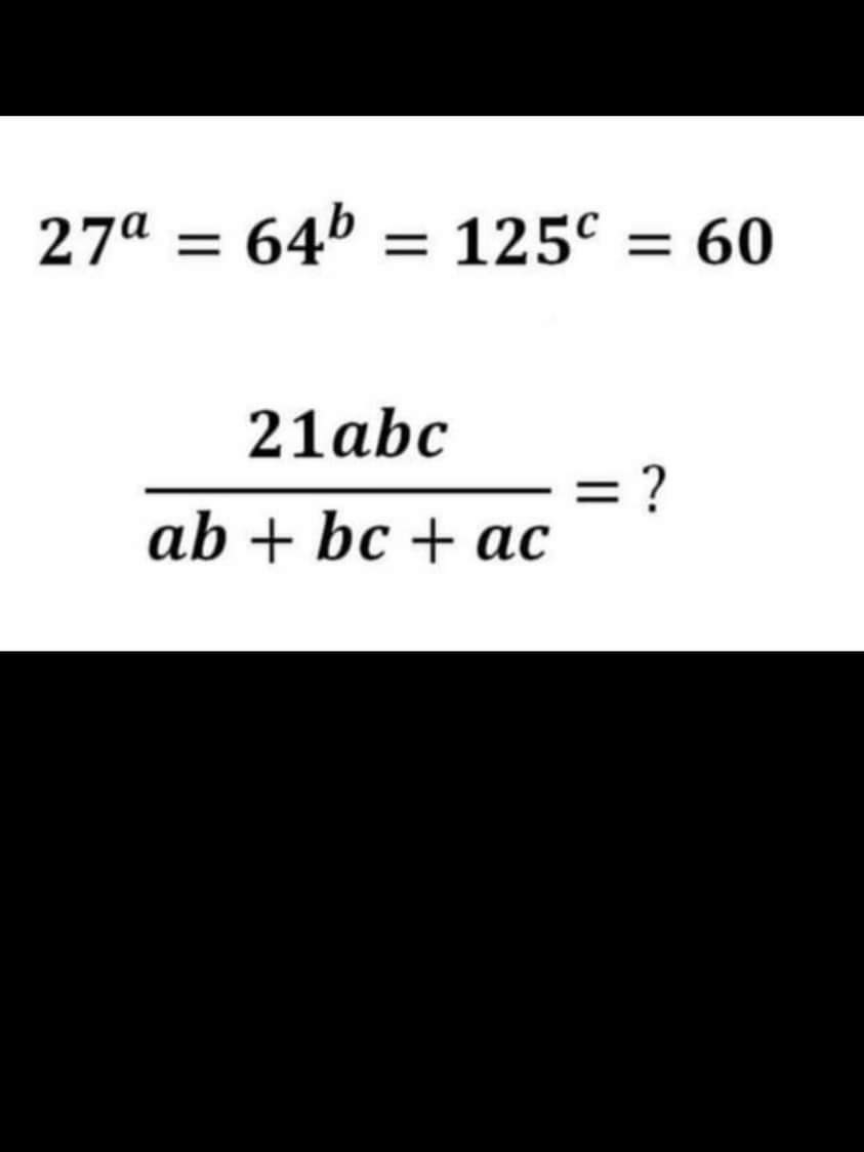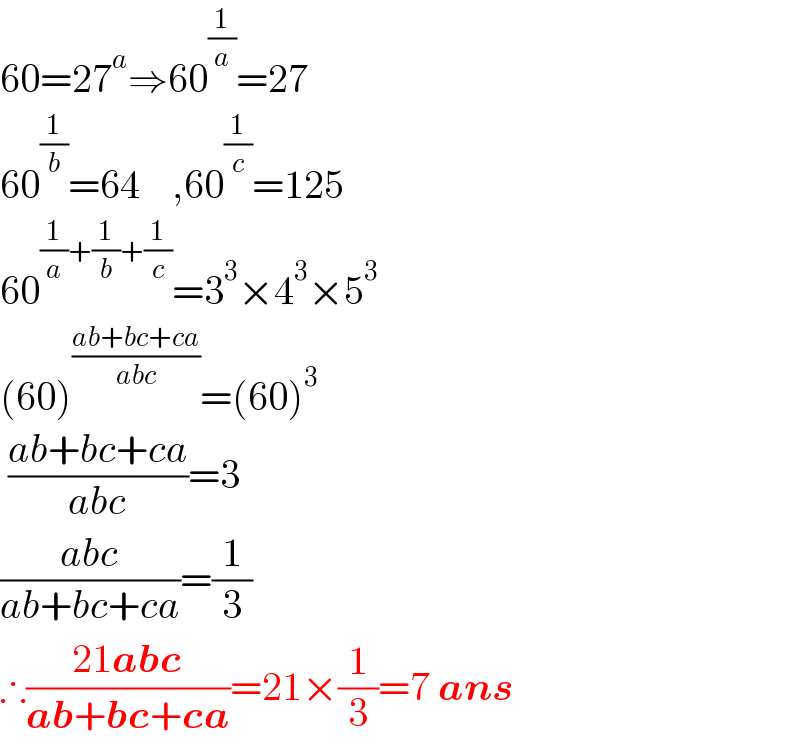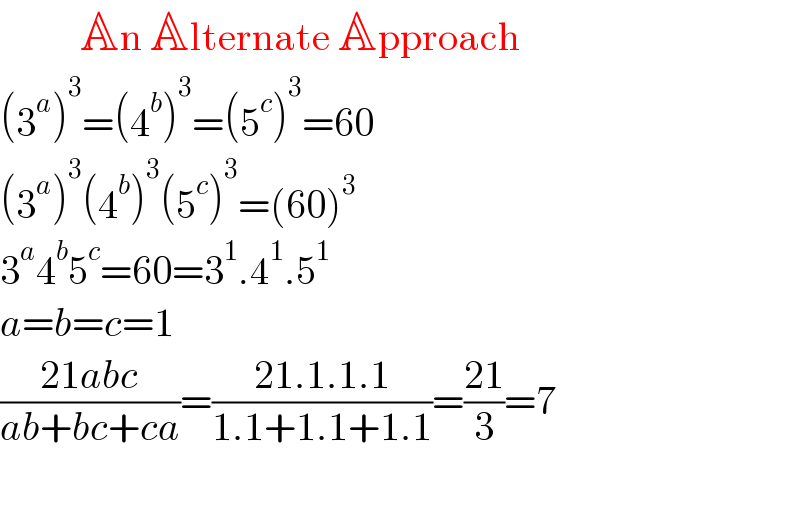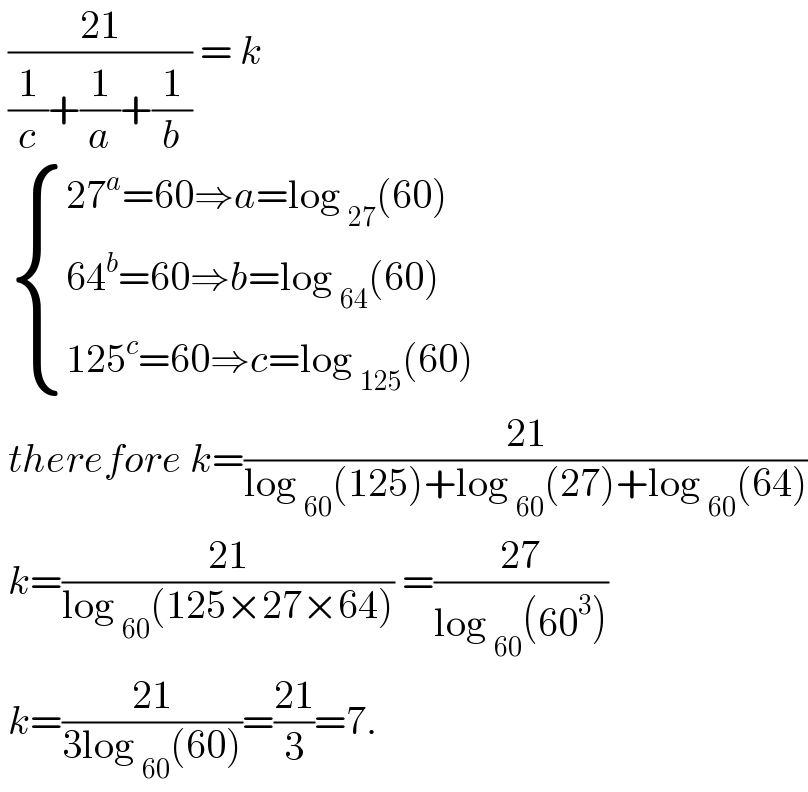
Question and Answers Forum
Question Number 156676 by mathlove last updated on 14/Oct/21

Commented by MathSh last updated on 14/Oct/21

Answered by som(math1967) last updated on 14/Oct/21

Answered by Rasheed.Sindhi last updated on 14/Oct/21

Commented by mr W last updated on 14/Oct/21

Commented by Rasheed.Sindhi last updated on 14/Oct/21

Answered by john_santu last updated on 14/Oct/21

Commented by cortano last updated on 14/Oct/21

Commented by peter frank last updated on 14/Oct/21

